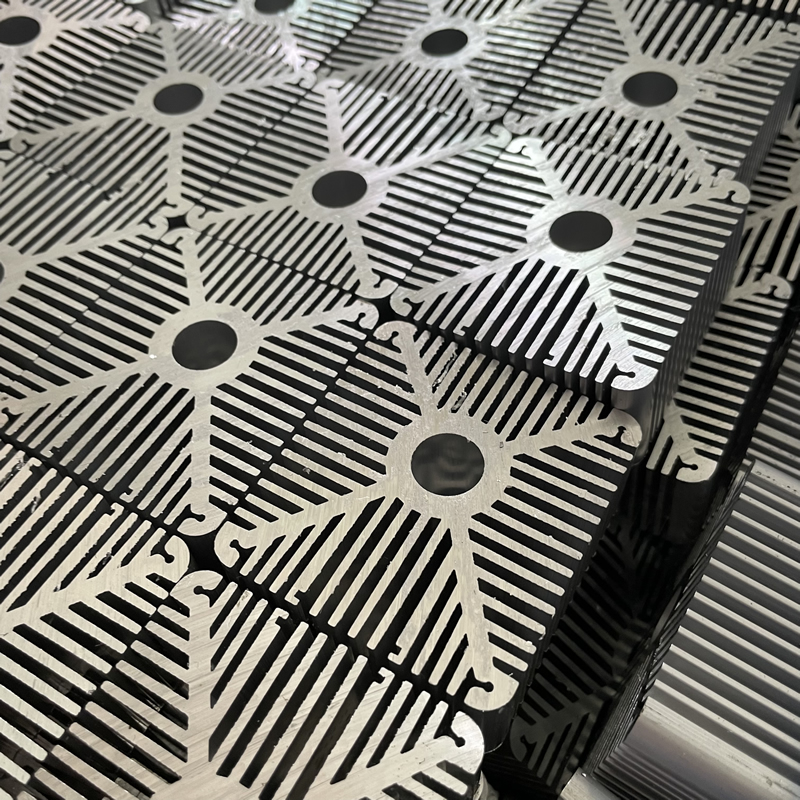Understanding the Anodizing Process for CNC Machined Aluminum Heat Sink Parts

Enhancing Aluminum Heat Sink Parts
Understanding the anodizing process is essential for improving the performance and durability of CNC-machined aluminum heat sink parts. By subjecting the aluminum to an electrochemical process, anodizing enhances its surface, resulting in improved corrosion resistance and overall longevity. This process plays a crucial role in ensuring that heat sink parts can effectively dissipate heat, thereby optimizing the functionality of electronic devices.
Anodizing Process: Anodizing involves enhancing the surface of aluminum through an electrochemical process.
Aluminum Anodizing Techniques
Anodizing is a versatile process that offers several techniques to enhance the surface of aluminum for heat sink parts. Understanding these techniques is crucial for optimizing the performance and longevity of CNC-machined aluminum components.
Anodizing Process Overview
Anodizing, also known as anodization, is an electrochemical process that transforms the outer layer of aluminum into a durable, corrosion-resistant oxide coating. This protective layer provides an excellent base for further enhancements and treatments, making it an ideal surface finish for heat sink parts.
Benefits of Anodizing
Anodizing significantly improves the corrosion resistance and durability of aluminum heat sink parts. The process creates a hard, wear-resistant surface that can withstand harsh environmental conditions, ensuring the long-term reliability of heat dissipation components.
By utilizing anodization techniques, manufacturers can effectively enhance the properties of aluminum heat sink parts to meet the stringent demands of various applications while maintaining optimal thermal performance.
Precision Machining for Heat Sinks
CNC Milling Techniques
When it comes to creating aluminum heat sink parts, CNC milling techniques play a pivotal role in ensuring precision and accuracy. The process involves using computer numerical control (CNC) machines to remove material from a solid block of aluminum, resulting in intricately detailed and precisely crafted heat sink components.
Importance of Precision
Precision machining is not just a desirable feature; it is an essential requirement for optimizing the functionality of heat sink components. The intricate designs and fine details of heat sinks demand high levels of precision to ensure that they effectively dissipate heat and contribute to the overall performance and longevity of electronic devices. As such, CNC milling techniques are indispensable for achieving the level of accuracy necessary for these critical components.
By leveraging CNC milling techniques, manufacturers can produce aluminum heat sink parts with unparalleled precision, meeting the exact specifications required for efficient thermal management in various applications.
Design Principles for Heat Dissipation
Efficient Heat Dissipation
Effective heat dissipation is a critical factor in maintaining the optimal performance and longevity of electronic devices. When electronic components generate heat during operation, it can negatively impact their functionality and reliability. Therefore, efficient heat dissipation is essential to prevent overheating and ensure consistent performance.
To achieve efficient heat dissipation, heat sink parts must be designed with adequate surface area and optimized airflow. This allows for the effective transfer of heat away from the electronic components, preventing any potential damage due to excessive temperatures. Additionally, the selection of high-conductivity materials further enhances the efficiency of heat dissipation, ensuring that the electronic devices operate within safe temperature limits.
Applications of Anodized Heat Sink Parts
Anodized heat sink parts play a crucial role in various industries, offering effective thermal management solutions for electronic devices and automotive applications.
Electronic Device Cooling
Anodized heat sink parts are widely utilized in the cooling systems of electronic devices such as computers, smartphones, and other gadgets. The anodized surface enhances the heat sink's durability and corrosion resistance, making it an ideal choice for efficiently dissipating heat generated by electronic components. This application ensures that electronic devices operate within safe temperature limits, thereby optimizing their performance and longevity.
Automotive Industry
In the automotive industry, anodized heat sink parts find extensive use for thermal management purposes. These components are integrated into vehicles to dissipate excess heat generated by various systems, including engines, transmissions, and electronic control units. The anodized coating enhances the durability and reliability of the heat sinks, contributing to efficient thermal management within automobiles.
By leveraging anodized heat sink parts, both the electronics and automotive industries benefit from enhanced performance, extended longevity, and reliable thermal management solutions.
The Impact of CNC Milling
CNC milling, also known as Computer Numerical Control milling, exerts a significant impact on the performance and durability of aluminum heat sink parts. This precision machining process ensures that intricate designs and fine details are accurately reproduced, resulting in heat sink components that effectively dissipate heat and contribute to the longevity of electronic devices. The use of CNC milling techniques allows manufacturers to meet the exact specifications required for efficient thermal management in various applications, thereby enhancing the overall quality and functionality of heat sink parts.
See Also
The Influence of Small Components CNC on Personalized R/C Hobby Items
Investigating the Benefits of Aluminum CNC Machining Solutions
2024 Top Benchtop CNC Mill for RC Enthusiasts - Leading CNC Milling Analysis
About US
Follow Us
Your prototype holds unparalleled significance, and we deeply value its uniqueness. Collaborating with you during the preparation phase for running your prototype or parts is a commitment we gladly embrace. Whether it's a single part or a complex assembly, we are dedicated to selecting the optimal tools and pathways to bring your envisioned product to life.
At Precision Fab CNC Machining, we specialize in producing parts for prototypes, short runs, and high-volume production. Our prototyping machine capabilities extend across metal, plastic, and wood machining, with welding fabrication services available to complement and finalize your prototype if required.
Address
Address: Room320 10F, Building A,Nanshan international building, Dayawan District, Huizhou, Guangdong, 516001 China
Contacts
billy@timaycnc.com

